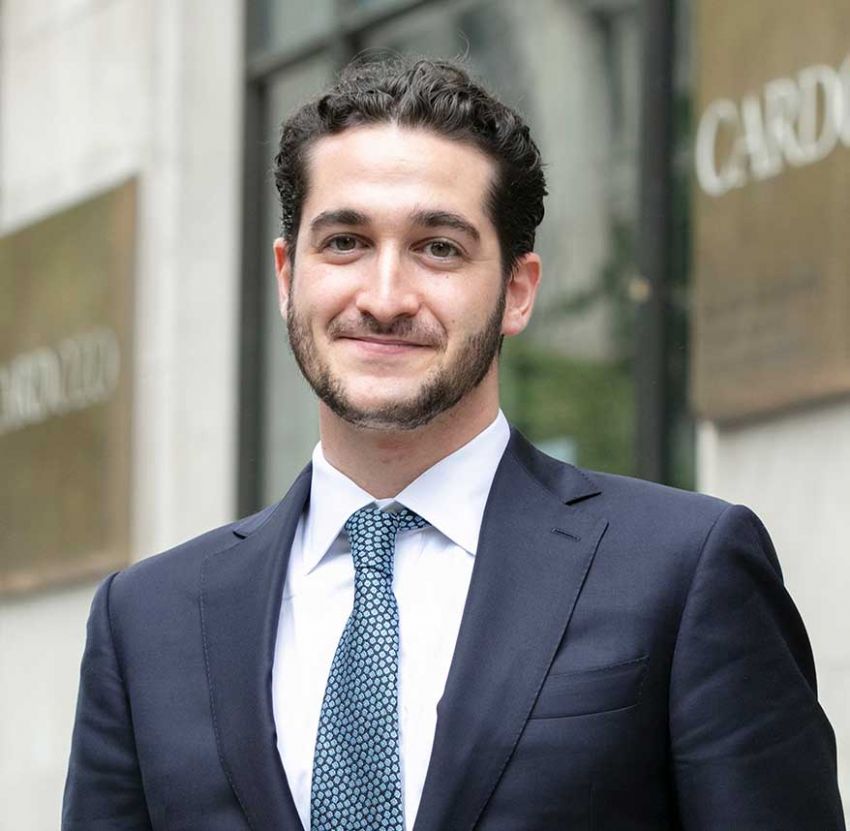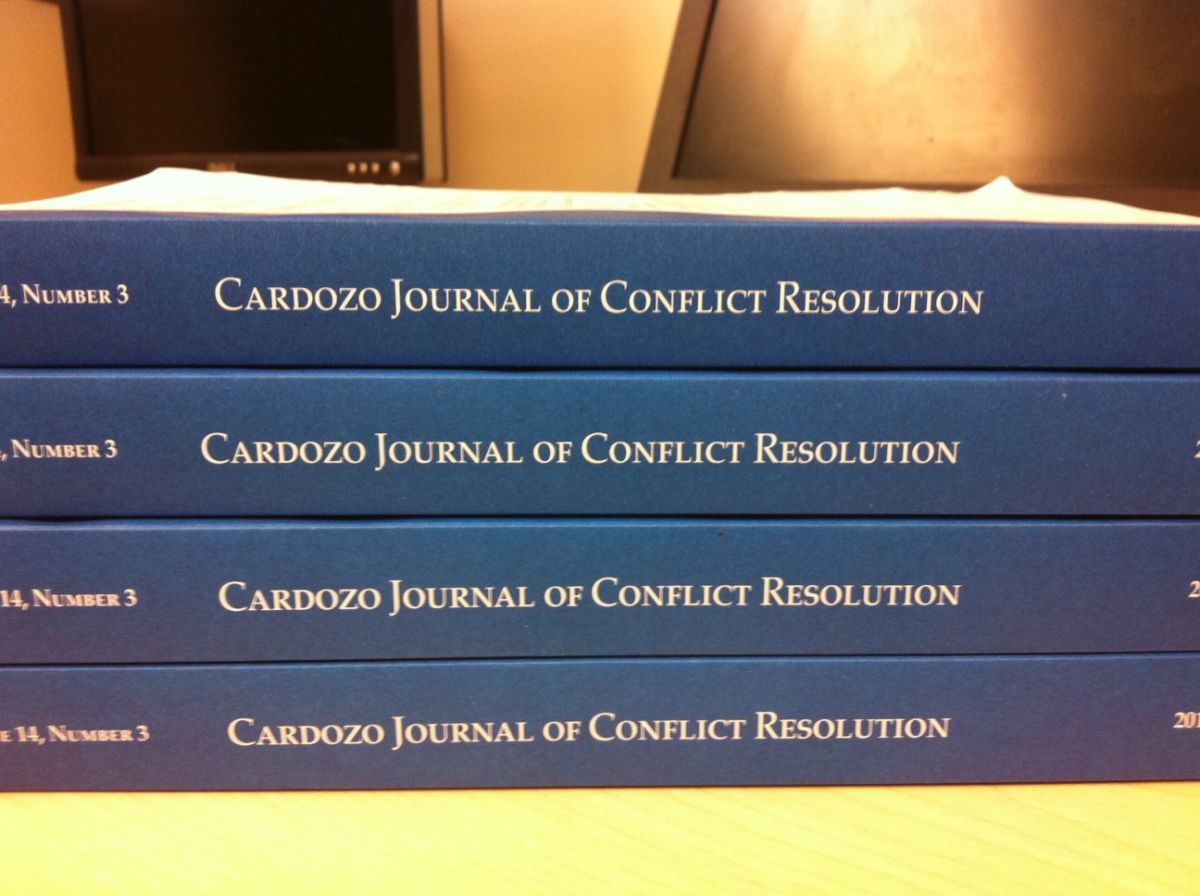Founded in 1998 by a group of dedicated students, the Cardozo Journal of Conflict Resolution (CJCR) is the country’s preeminent legal journal of arbitration, negotiation, mediation, settlement, and restorative justice. It is the most heavily cited legal publication in the broad field of “Civil Litigation and Dispute Resolution,” ranked first internationally in 2019. Edited by third-year law students and staffed by second-year law students, the Journal publishes on issues at the cutting edge of legal and academic thought. CJCR publishes three issues annually: Fall, Winter, and Spring.
The Cardozo Journal of Conflict Resolution
Each fall CJCR hosts the annual Melnick Symposium, which features innovative programming featuring prominent dispute resolution academics and practitioners from around the globe. Previous symposia topics include Negotiation Strategies for War by Other Means, Presumptive ADR and Court Systems of the Future, Innovations in Justice: Experiments in Restorative Practices, The Singapore Mediation Convention: Compliance with Cross-Boarder Mediated Settlement Agreements, Persistent Human Divides: Creative Initiatives for Communication, Collaboration and Cohesion. A complete list of the previous symposium are listed here: https://www.cardozojcr.com/symposia
CJCR also sponsors the annual International Advocate for Peace (IAP) Award. This award honors individuals who embody a passion for and commitment to the pursuit of peace and of resolution of difficult international problems. Recipients come to Cardozo to present a speech on conflict and resolution. Previous award recipients include: President Jimmy Carter, President Bill Clinton, Ambassador Richard Holbrooke, Senator George Mitchell, John Wallach and Seeds of Peace, playwright Eve Ensler, Archbishop Desmond Tutu, Betty Murungi, Ambassador Dennis Ross, Abigail Disney and Sir Paul McCartney.
"As a former Editor-in-Chief of the Journal of Conflict Resolution, I'm incredibly proud to see this year's rankings. Journal rankings reflect scholarly citations over a five-year period. That means that the hard work of student editors -- selecting groundbreaking scholarship, working closely with authors, publicizing articles -- bears fruit far into the future. Thanks to Professor Love's thoughtful influence, dispute resolution has become embedded into Cardozo's DNA. Our students think of themselves as problem-solvers. And our Journal editors are well-versed in currently scholarly conversations about novel ways that legal problems can be solved. It's so gratifying to know that academics trust our Journal as an important place to share their ideas. Our editors work hard to earn that trust."


